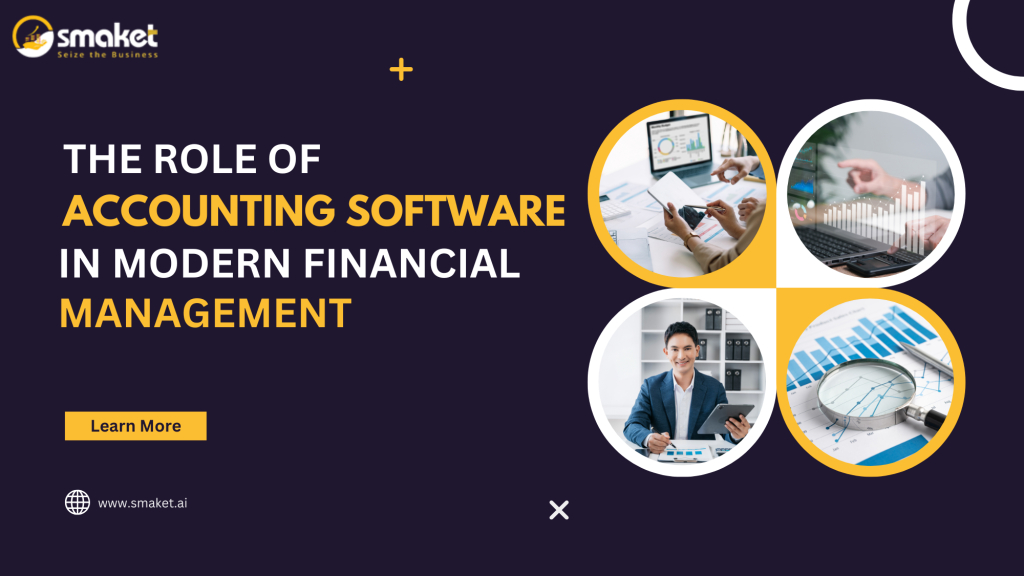In today’s fast-paced, tech-driven world, businesses of all sizes are under increasing pressure to streamline operations and improve efficiency. One area where technology has made a significant impact is financial management, with Accounting Software playing a crucial role in modernizing the way businesses handle their finances. Gone are the days of manual bookkeeping and endless spreadsheets—accounting software has transformed financial management into a more efficient, accurate, and accessible process.
In this blog, we’ll explore the key Roles Accounting Software plays in modern financial management and why it’s essential for businesses today.
1. Automating Routine Tasks
One of the most significant advantages of accounting software is the automation of routine financial tasks. Manual bookkeeping can be time-consuming and prone to human error, especially for businesses with a high volume of transactions. Accounting software automates processes such as:
– Generating invoices
– Recording transactions
– Tracking payments and expenses
– Calculating taxes
By automating these tasks, businesses can save time, reduce the risk of errors, and free up resources for more strategic activities, such as financial analysis and business growth planning.
2. Improved Accuracy and Reduced Errors
In the world of finance, accuracy is critical. Even small errors can lead to significant financial discrepancies or compliance issues. Accounting software helps reduce human errors by automating calculations and ensuring that data is entered consistently across the system.
For example, when you input a transaction, the software automatically adjusts all relevant accounts in real time, ensuring your financial records remain balanced. This leads to greater precision in financial reporting and reduces the need for manual checks and corrections.
3. Real-Time Financial Insights
In the past, businesses had to wait for the end of the month or quarter to review financial reports. With accounting software, financial data is updated in real-time, giving business owners and financial managers instant access to critical insights. This real-time visibility into financial performance helps with:
– Monitoring cash flow
– Tracking expenses
– Identifying trends in revenue and costs
– Making data-driven decisions
Having up-to-date financial information at your fingertips allows businesses to act quickly and adapt to changing circumstances, improving overall financial agility.
4. Simplified Tax Compliance
Tax season can be a stressful time for businesses, especially when it comes to ensuring that all transactions are accurately reported and that tax deductions are maximized. Accounting software simplifies the tax process by:
– Automatically categorizing expenses
– Tracking tax-deductible items
– Generating tax reports
– Calculating taxes owed
Many accounting platforms are also regularly updated to comply with the latest tax laws and regulations, reducing the risk of non-compliance. This not only saves time but also helps businesses avoid costly penalties.
5. Enhanced Financial Reporting
Accurate and timely financial reporting is essential for making informed business decisions. Accounting software provides a wide range of customizable reports that can be generated with just a few clicks. These reports include:
– Profit and loss statements
– Balance sheets
– Cash flow statements
– Budget variance reports
By providing clear and comprehensive reports, accounting software enables business owners and managers to assess their company’s financial health, track progress against goals, and identify areas for improvement.
6. Scalability and Integration with Other Tools
As businesses grow, their financial management needs become more complex. Modern accounting software is designed to scale with your business, offering advanced features like multi-currency support, inventory management, and payroll processing. Additionally, most accounting software integrates seamlessly with other business tools, such as:
– Customer relationship management (CRM) systems
– E-commerce platforms
– Payment gateways
– Project management software
This integration ensures that financial data flows smoothly across different departments, enabling a more cohesive and efficient business operation.
7. Cost-Effectiveness and Efficiency
Investing in accounting software may seem like an upfront expense, but it often proves to be cost-effective in the long run. By automating manual tasks, reducing errors, and providing valuable financial insights, accounting software helps businesses save money by improving operational efficiency. Additionally, it reduces the need for a large in-house finance team, especially for small to medium-sized businesses.
Conclusion
In the digital age, accounting software has become an indispensable tool for modern financial management. From automating routine tasks to providing real-time insights and ensuring compliance with tax laws, billing software simplifies the complexities of managing finances. Whether you’re a small business owner or managing a large corporation, leveraging the power of billing software can help you stay competitive, make informed decisions, and focus on what truly matters—growing your business.
Ready to streamline your financial management? Explore how Smaket Accounting Software can help your business save time, reduce errors, and gain valuable financial insights. Try it today!

